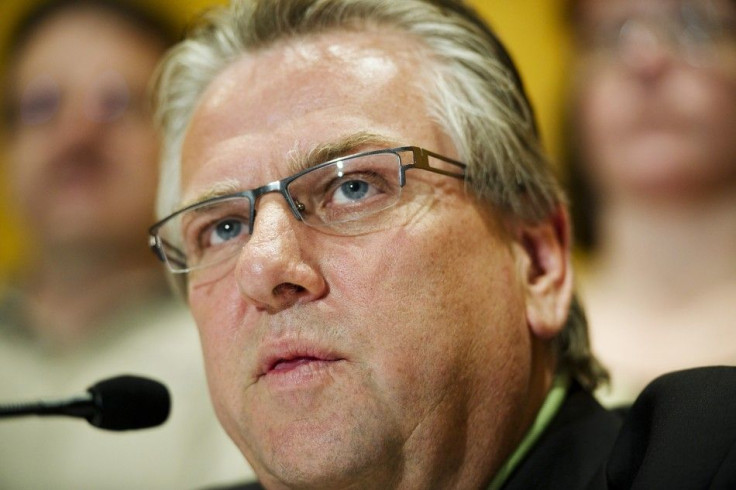CAW seeks strike OK at Caterpillar plant

The head of the Canadian Auto Workers union is looking for a green light from members to potentially strike Caterpillar over a contract dispute in London, Ontario.
Caterpillar and the CAW have been negotiating a new deal for locomotive-manufacturing employees who have a contract expiring at the end of this week. The union has repeatedly said the Peoria, Illinois company's offer is too low, and the gap too wide, but now the two sides are running out of time.
CAW President Ken Lewenza said in a Thursday interview that the union received and rejected the latest proposal on Tuesday. The offer calls for a better than 50 percent reduction in our pay and a better than 50 percent reduction in our health care benefits, with the elimination of the pension plan.
The deal would affect about 425 production workers who came to Caterpillar in the 2010 acquisition of Electro-Motive Diesel.
The current contract expires at midnight on December 31.
Lewenza said the CAW is opposed to cutting core wages and benefits while Caterpillar officials told Reuters its deal is fair, reasonable and market competitive.
The CAW will meet with members Friday to discuss the next steps.
The reality is we're having a membership meeting tomorrow morning, and giving them an update on the negotiations and we're going to ask our membership for strike authorization because the proposal is so unprecedented, quite frankly, he said.
COMPANY TAKING STEPS
Caterpillar said it has taken steps to ensure it can continue fulfilling orders regardless of what happens in negotiations with the CAW.
Its shares are up 1.5 percent at $90.70 in afternoon trading on the New York Stock Exchange, roughly in the middle of this year's range between $67.55 and $116.42.
Caterpillar's Alabama-based Progress Rail Services unit owns the Electro-Motive operation and the CAW has said concerns about Caterpillar's commitment to Canada has escalated as the company invested in locomotive production facilities outside of Canada. Progress Rail competes with General Electric Co and Bombardier Inc.
What we're trying to do is establish a protocol for either a lockout situation or a strike situation, said Lewenza. We're still shaking as many bushes as we can, trying to make some sense of what the hell is going on here.
The company is installing a secondary fence around the facility and has a significant security presence on the grounds, Lewenza said.
The reality is that we have bargained with multinational corporations that have experienced incredibly difficult times and we never touched our core wages or our core benefits. And we're not going to do that here either.
The CAW anticipates that Caterpillar could lock out the hourly employees when the contract expires.
The company said that it has taken a number of standard steps to protect the company's personnel and property, and maintain our ability to fulfill our customers' needs and expectations.
LOOKING TO GOVERNMENT
CAW cites Caterpillar's profitability while digging in its heels over the steep proposed givebacks.
We've in the last couple of years faced some incredible challenges and so have employers, but Caterpillar is making significant profits, the CEOs are doing well, shareholders are doing well, said Lewenza. This is not a company that's in any financial distress at all.
Caterpillar, which this month forecast fiscal 2012 sales up as much as 20 percent, recently bought facilities to build Electro-Motive Diesel locomotives in Mexico, Brazil and in the United States.
The company has said it plans to keep the London, Ontario plant operating, but at a more competitive rate.
CAW officials last week sent a letter to Canadian Prime Minister Stephen Harper, seeking a review of the Electro-Motive Canada purchase, and intervention with Caterpillar to ensure the London plant's future. As yet, there has been no response.
This has all the makings of a significant dispute, said Lewenza. This really is going to take, from our perspective, an involved government from municipal, provincial and federal government.
In addition to the 425 jobs represented by the CAW at the plant, there are also 300 salary jobs in areas such as research and engineering, he said.
© Copyright Thomson Reuters {{Year}}. All rights reserved.





















